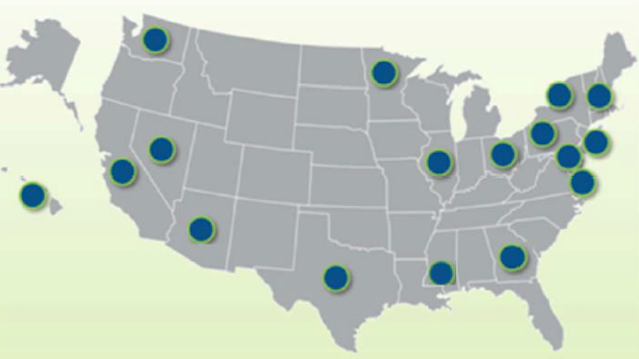Updated Oct 31,2017
CDC National Progress Report on Hepatitis Elimination Reveals Rise in Acute HBV Infections and Low Birth Dose Vaccination Rates in the U.S.
October 27, 2017 – Today, the Centers for Disease Control and Prevention (CDC) released their national progress report on viral hepatitis elimination in the United States measuring progress towards achieving 2020 goals. The report reveals ongoing challenges in combating hepatitis B (HBV), underscoring the importance of increasing focus on federal research and funding.
Data reveals there continue to be challenges in addressing hepatitis B with new increases in rates of acute hepatitis B infection among adults, particularly those between the ages of 30 and 59 years. The recent spike in acute HBV infections is attributed to increases in injection drug use related to the ongoing opioid crisis.
Additionally, the report shows little progress made in the percentage of newborns who receive the hepatitis B vaccine within 3 days of birth at 74.5%, well below the 2020 goal of 85 percent. The low rates of HBV birth dose rates across the country means babies are particularly vulnerable to chronic HBV infection, slowing the nation’s progress towards elimination of perinatal hepatitis B transmission. In the U.S., it is estimated that about 1,200 infants become infected with hepatitis B at birth.
“Hepatitis B clearly remains a serious public health problem In the U.S. We must improve our efforts and strategies to increase HBV vaccination coverage among both adults and infants,” said Chari Cohen, DrPH, MPH, vice president for public health and programs at the Hepatitis B Foundation and Hep B United co-chair. “More importantly, in order to make real progress towards achieving our goals to eliminate hepatitis B, we must collect data and measure the rates of chronic HBV infection, which affects the majority of individuals in the U.S. Without national surveillance of chronic HBV infection, we are not measuring our progress in screening, linkage to care, and treatment.”
The report also showed a decrease in HBV-related deaths in 2015 at 0.45 per 100,000, revealing large disparities among men and Asian Americans and Pacific Islanders who experience more than 3 times higher the rate of HBV-related deaths.
Hep B United was co-founded and is co-chaired by the Hepatitis B Foundation and the Association of Asian Pacific Community Health Organizations (AAPCHO). The coalition is dedicated to reducing the health disparities associated with hepatitis B by increasing awareness, screening, vaccination, and linkage to care for high-risk communities across the United States.
Hep B United Coalition Partners Across the Country

Hep B United Partners
Community Partners: Asian American Health Coalition (HOPE Clinic). Asian American Health Initiative. Asian Health Coalition. Asian Pacific Health Foundation. Asian Pacific Community in Action. Asian Services in Action Inc. Center for Pan Asian Community Services (CPACS). Charles B Wang Community Health Center. Chinese American Medical Society – Greater Boston Chapter. CCACC Pan Asian Volunteer Health Clinic. Dallas Fort Worth Hepatitis B Free Project. Hep B Free Las Vegas. Hep B Free Los Angeles. Hep B Project. Hep B United Philadelphia. Hep B United Twin Cities. Hep Free Hawaii. Hepatitis B Coalition of WA. Hepatitis B Initiative of Washington, DC. Hepatitis Education Project. Midwest Asian Health Association. New Jersey Hepatitis B Coalition. North East Medical Services. NYC Hepatitis B Coalition. NYU Center for the Study of Asian American Health (CSAAH). Ohio Asian American Health Coalition. Project Prevention. SF Hep B Free.
National Non-Profit Partners: Hepatitis B Foundation. Association of Asian Pacific Community Health Organizations (AAPCHO). Asian American Network for Cancer Awareness, Research and Training (AANCART). Asian Pacific American Medical Students Association (APAMSA). National Task Force on Hepatitis B. National Viral Hepatitis Roundtable. Asian & Pacific Islander American Health Forum. Immunization Action Coalition.
Federal Partners: US Department of Health and Human Services (HHS). Centers for Disease Control and Prevention, Division of Viral Hepatitis, HHS. HHS Office of Minority Health. White House Initiative on Asian Americans and Pacific Islanders.

